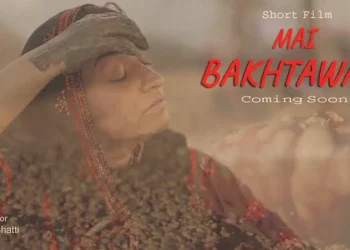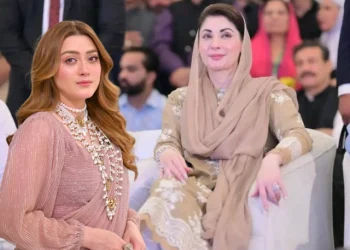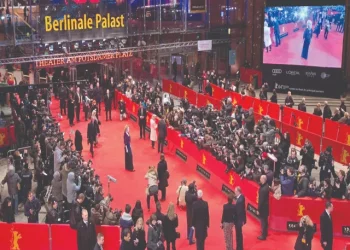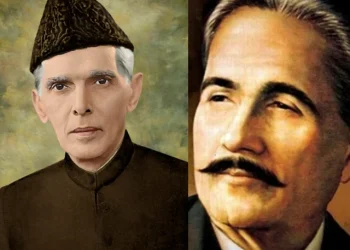There is no denying that Taylor Swift has all the trappings of a successful musician. Subscribing to the 2024 criterion of success, she has to her credit impressive album sales, distinguished accolades, record-breaking streaming figures and an inviting cloak of rawness.
For too long, men have flaunted their (numerous) sex and love escapades as a badge of honour. But with Taylor, it is not about righting the balance of entitled debauchery. It is about embracing vulnerability.
“I first listened to Taylor Swift in 2009,” Naveen Shariff tells The Express Tribune. “I was 11 years old. I’ve basically grown up with her music, from playing Teardrops on my Guitar in my room in Quetta to following her easter eggs leading up to her latest album releases.”
Like many Swifties, the Red singer always meant more to Naveen than a successful musician. “She was someone to look up to, who could use words much better than I could. Someone who help me make sense of things like growing up, self-discovery, and boys.” Like many Swifties, the 26-year-old fan based in Karachi is also more than just a fan.
“I am highly disappointed in her silence as thousands of Palestinians are dying. I don’t think it surprised me though.” Emotions run high in all online fan communities but Taylor’s admirers have long cultivated a reputation for being serious and too many. With the onset of Israel’s ruthless military operation in the Gaza Strip and the West Bank since October 7, many identities are experiencing a turnover.
“It feels so weird to consume art by a person who is so aggressively ignoring a genocide,” says Rabiya Raza, another Karachiite who brands herself a Swiftie. A dedicated fan since she was 12, Rabiya has been there to witness Taylor’s various eras and their corresponding politics evolve. “She has been a large part of my upbringing and the way that I am. She’s my number 1 artist on Spotify.”
The confessional singer
Taylor’s music embraces her love affairs, her guilt, her grievances – a genre of writing that has often been classed as confessional poetry. Confession was formally linked to poetry first in 1959 by ML Rosenthal. While the American poet and literary critic was thinking more about the intimate liberties taken by Sylvia Plath, Anne Sexton and John Berryman, Taylor is only one more woman to become the modern-day ultra-feminine ‘confessional singer’.
Thanks to patriarchy and market forces, confessions have been rescued from religious hysteria and rebranded as feminine hysteria – only more lucrative. The vacuous label notwithstanding, Taylor is undoubtedly the face of vulnerable artmaking today, similar to Joni Mitchell (as well as Leonard Cohen and Frank Ocean).
Yet unlike these other women and men, the Midnights singer has the benefit of a massive clout. The odds of crossing paths with disgruntled Swifties on X/Twitter are aplenty. From ‘hexing’ haters to excommunicating associates, these fandoms create meaning as much as they consume. So when well-intentioned critics or salty incels point fingers at Taylor’s alleged mediocrity or her ritualistic airing of dirty laundry, Swifties are quick to rise.
Then there is the politics. The singer-songwriter’s legal dispute with Scooter Braun in 2019, owner of her former record label, Big Machine Records, transformed both her public persona and her fandom(s). A woman protecting her first six studio albums from the invisible grab of the market is a welcome sight. From 2021 through 2023, Taylor’s decision to own what she made soon found her re-recording her early albums to phenomenal reception.
Cue 2020 and a musical docufilm on the pop star finds a home on Netflix. Among its many soundbites, Taylor as Miss Americana announces that she wants to “wear pink” and tell you how she “feels about politics”. But is the Fearless singer only fearless within the ambit of white neoliberalism?
#SwiftiesForPalestine
In March, UN expert Francesca Albanese put out a statement, arguing that Israel has violated three of the five acts listed under the Genocide Convention. As the death toll crosses 37,000, the pressure against the apartheid regime too is mounting globally. #SwiftiesForPalestine and #SpeakNowTaylorSwift are some hashtags to have cropped up in solidarity with Palestinian resistance against Israel’s long-standing settler colonialism.
Remarking on the digital activism, Rabiya says, “I think the pressure by fandoms on artists is warranted to an extent because there is no way anyone has no thoughts on the matter.” Naveen echoes a similar frustration, “From what I know of the company Taylor keeps, her silence is rather confusing. Her best friend, Gigi Hadid, is a Palestinian.”










 American Dollar Exchange Rate
American Dollar Exchange Rate